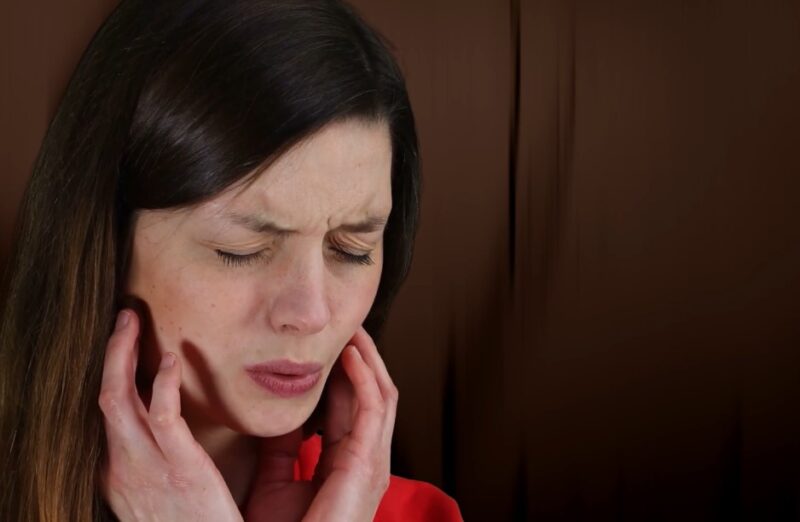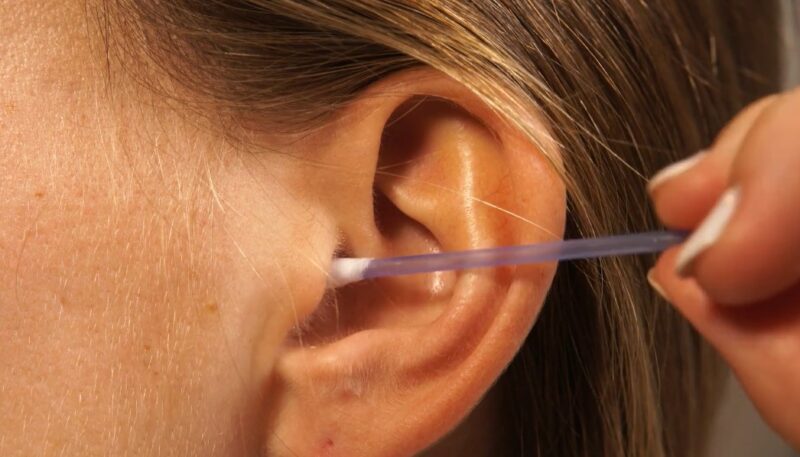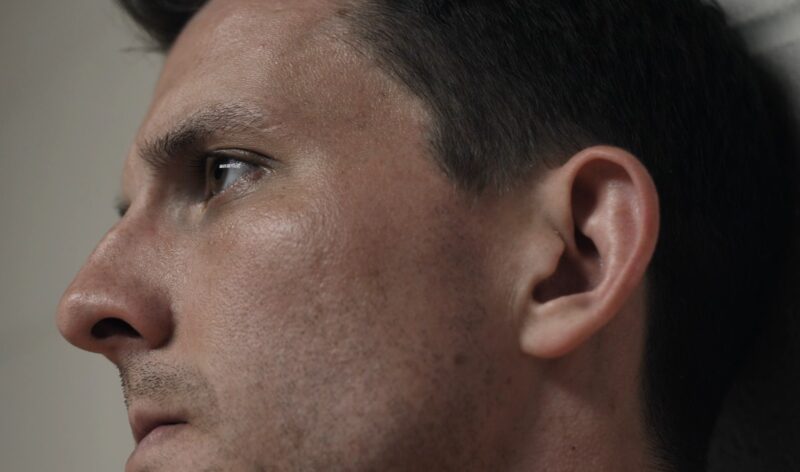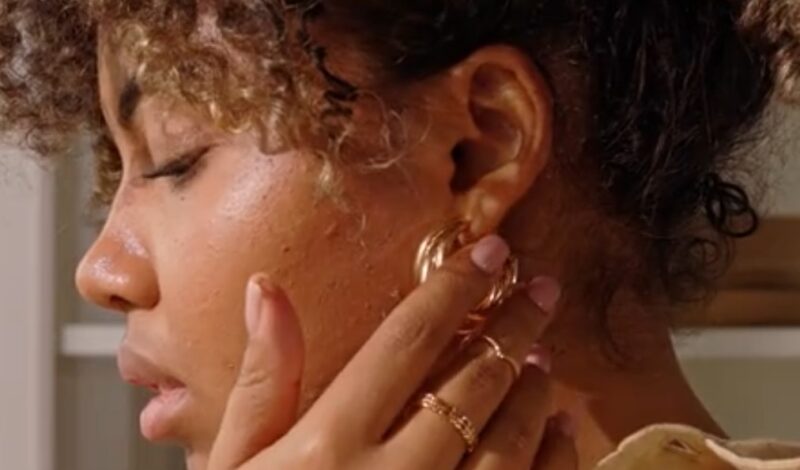Common Causes of Ear Tingling

1. Nerve Damage (Neuropathy)
According to the Mayo Clinic, nerve damage or neuropathy can lead to tingling sensations in various parts of the body, including the ears.
- Peripheral Neuropathy: Often affects extremities but can extend to facial nerves.
- Cranial Nerve Damage: Specifically impacts nerves in the head and neck region.
2. Ear Infections
As noted by John V. Ashurst., ear or sinus infections, particularly otitis media (middle ear infection), can cause tingling sensations due to inflammation and fluid buildup.
- Symptoms: Pain, hearing loss, and sometimes a tingling feeling.
- Causes: Bacterial or viral infections that inflame the middle ear.
3. Earwax Buildup

Excessive earwax can press against the eardrum or ear canal walls, leading to tingling sensations. As per Harvard Health Publishing, earwax impaction is a common but often overlooked cause.
- Symptoms: Hearing loss, fullness in the ear, and possible tingling.
- Treatment: Safe removal by a healthcare professional.
4. Allergies
Allergic reactions can cause tingling in the ears due to histamine release, leading to inflammation. According to the Asthma and Allergy Foundation of America, allergens can affect the Eustachian tube, causing ear discomfort.
- Common Allergens: Pollen, dust mites, pet dander.
- Management: Avoidance of allergens and antihistamine medications.
5. Temporomandibular Joint Disorder (TMJ)
@ildoc_osteopata TMJ disorder approach #tmj #tmjdisorder #tmjtreatment #temporomandibular #temporomandibolare #dentista #dentistaentiktok #dentist #orthodox #osteopathy #osteopati #osteopata #fyp #foryou #fypage #neiperte #viraltiktok ♬ suono originale – Il Doc Osteopata
TMJ disorders affect the jaw joint and surrounding muscles, which can lead to ear tingling. As per the NCBI, TMJ disorders can cause referred pain and sensations in the ear.
- Symptoms: Jaw pain, clicking sounds, and ear discomfort.
- Causes: Misalignment, arthritis, or injury to the jaw.
6. Circulatory Issues
Poor blood circulation can result in tingling sensations. According to the American Heart Association, circulatory problems may lead to insufficient blood flow to certain areas, including the ears.
- Related Conditions: Hypertension, atherosclerosis.
- Symptoms: Cold extremities, numbness, and tingling.
7. Neurological Conditions
Certain neurological disorders can manifest as tingling in the ears. As noted by the National Institute of Rare Disorders and Stroke, conditions like multiple sclerosis (MS) can cause sensory disturbances.
- Symptoms: Muscle weakness, coordination issues, and sensory changes.
- Importance of Diagnosis: Early detection can improve management.
8. Medications
Some medications list tingling sensations as a side effect. As per the U.S. Food and Drug Administration (FDA), drugs like certain antibiotics or chemotherapy agents can affect nerve function.
- Action: Consult a doctor if side effects occur.
- Adjustment: Possible change in medication or dosage.
9. Vitamin Deficiencies

Deficiencies in vitamins, particularly B vitamins, can lead to nerve issues. According to Harvard Medical School, vitamin B12 deficiency can cause neuropathy.
- Symptoms: Fatigue, anemia, and tingling sensations.
- Sources: Meat, dairy products, fortified cereals.
10. Exposure to Loud Noises
Prolonged exposure to loud sounds can damage the delicate structures of the ear. As per the National Institute on Deafness and Other Communication Disorders, this can lead to tinnitus and tingling sensations.
Effective Treatments for Ear Tingling
Managing ear tingling effectively involves a combination of medical interventions, lifestyle adjustments, and home remedies tailored to address the underlying causes. Here are five effective treatments to alleviate ear tingling and promote overall ear health:
1. Medical Interventions

According to the Centers for Disease Control and Prevention (CDC), bacterial ear infections are commonly treated with antibiotics to eliminate the infection and reduce inflammation. For viral infections, antiviral medications may be prescribed to help shorten the duration and severity of symptoms. Also, ear infections are not contagious.
Antihistamines and Decongestants
As per the Mayo Clinic, antihistamines can help manage allergic reactions that cause ear tingling by reducing histamine levels and alleviating inflammation. Decongestants may also be recommended to relieve Eustachian tube dysfunction, improving ear pressure regulation.
Nerve Pain Medications
For cases where ear tingling is due to nerve damage or neuropathy, medications such as anticonvulsants (e.g., gabapentin) and antidepressants (e.g., amitriptyline) can be effective in managing neuropathic pain and reducing tingling sensations, as noted by the Mayo Clinic.
2. Earwax Removal
Professional Ear Cleaning
According to Harvard Health Publishing, excessive earwax buildup can be safely removed by a healthcare professional through methods such as ear irrigation or manual extraction using specialized instruments. This helps alleviate pressure on the eardrum and reduce tingling sensations.
Over-the-Counter Ear Drops
Using ear drops that contain hydrogen peroxide or carbamide peroxide can help soften earwax, making it easier to remove.
3. Lifestyle and Home Remedies
Maintain Good Ear Hygiene
Keeping the ears clean and dry is crucial in preventing infections and earwax buildup. As advised by Healthline, avoiding the insertion of objects like cotton swabs into the ear canal can prevent irritation and impaction.
Warm Compresses
Applying a warm cloth to the affected ear can help reduce pain and improve blood circulation, potentially easing tingling sensations. The Mayo Clinic recommends using warm compresses as a simple home remedy to provide symptomatic relief.
4. Allergy Management
According to the Asthma and Allergy Foundation of America, identifying and avoiding known allergens such as pollen, dust mites, and pet dander can prevent allergic reactions that lead to ear tingling. Implementing environmental controls like using air purifiers and maintaining clean living spaces can significantly reduce exposure to allergens.
Immunotherapy
For individuals with severe allergies, immunotherapy (allergy shots) may be recommended to desensitize the immune system to specific allergens. As noted by the American Academy of Allergy, Asthma & Immunology, this long-term treatment can help reduce the frequency and severity of allergic reactions, including those affecting the ears.
5. Protective Measures Against Noise Exposure
Prolonged exposure to loud noises can damage the delicate structures of the ear, leading to tinnitus and tingling sensations. According to the National Institute on Deafness and OtherCommunication Disorders (NIDCD), wearing earplugs or earmuffs in noisy environments can prevent further damage and reduce the risk of ear tingling.
Volume Control
Keeping the volume at safe levels when using headphones or attending loud events is essential for protecting ear health. The NIDCD recommends limiting exposure to high-decibel sounds and taking regular breaks to give the ears time to recover.
Prevention Tips
Preventing ear tingling involves maintaining overall ear health and addressing potential risk factors:
- Maintain Good Ear Hygiene: Clean ears gently and avoid inserting objects into the ear canal to prevent irritation and infections.
- Protect Ears from Loud Noises: Use earplugs or earmuffs in noisy environments to prevent hearing loss and related tingling sensations.
- Manage Allergies: Keep allergies under control with appropriate medications and avoid known allergens to reduce the risk of Eustachian tube dysfunction and ear inflammation.
- Stay Hydrated and Healthy: A balanced diet and adequate hydration support overall health, including nerve function and ear health.
- Regular Check-ups: Regular visits to a healthcare professional can help detect and address ear-related issues early on.
Conclusion
Tingling in the ear can stem from a variety of causes, ranging from minor issues like ear infections and allergies to more significant conditions such as nerve disorders or TMJ dysfunction. Understanding the underlying cause is crucial for effective treatment and relief. While many cases of ear tingling can be managed with home remedies and over-the-counter treatments, persistent or severe symptoms should be evaluated by a healthcare professional to rule out serious health concerns.
Maintaining good ear hygiene, managing stress, protecting ears from loud noises, and addressing allergies promptly are proactive steps that can help prevent ear tingling and promote overall ear health. If you experience unexplained or persistent tingling in your ears, seeking medical advice is essential to ensure proper diagnosis and treatment.

